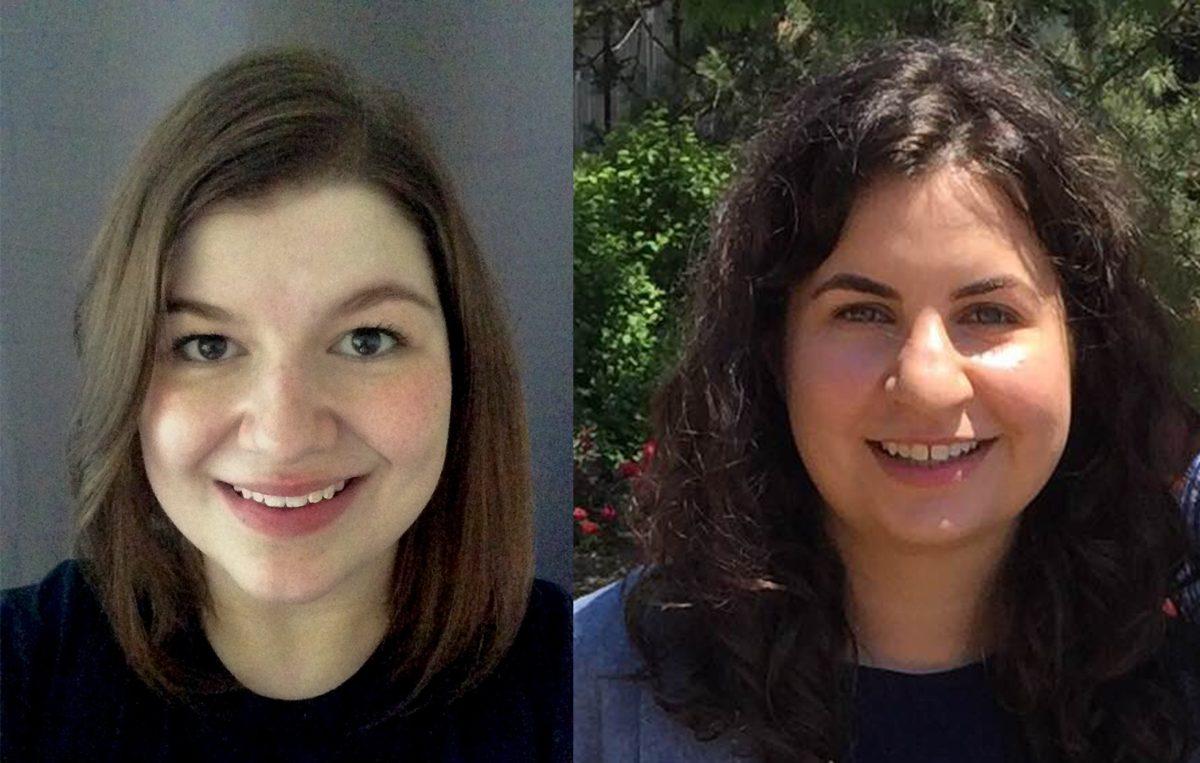Though both Michelle Lirtzman ’09 and Haley Harris ’12 started at Wellesley and ended up in screenwriting—Lirtzman is a story editor on “Scandal” and has a feature film in development; Harris is a staff writer for HBO’s “The Leftovers”—neither took a direct path from A to B. Lirtzman first worked in advertising strategy before attending the screenwriting MFA program at USC’s School of Cinematic Arts and, after graduating, worked a string of assistant jobs in Hollywood before being hired as a staff writer for “Grey’s Anatomy.” Harris worked for an economist, the San Francisco Opera and a murder mystery dinner theater before being hired as a writer’s personal assistant for the first season of “The Leftovers” and working her way up the ladder.
“You can’t just apply to be a writer on a TV show. No one is taking resumés for TV writers,” Lirtzman explained. “So you have to forge your own path, and everybody’s trajectory is different.” Harris noted that her own winding path provided professional benefits as well as personal ones. “My experiences helped me figure out who I was and what I was looking for in my life,” she emphasized. “It’s an added benefit that they gave me plenty of ideas for pilots and pitches for the room.”
While everyone works their way up differently, starting at the bottom is almost inevitable. “No matter how talented you are, you’re probably going to start doing really menial labor,” Harris warned.
So what can a newcomer expect from an entry-level position, like writers’ PA? “In short, a writers’ PA covers the food, the office and anything left over,” Harris said. “There are coffee runs, lunch runs, dinner runs, getting birthday cakes or other treats, stocking the kitchenette… Office is ordering supplies, sending and receiving mail, greeting visitors, answering phones, dealing with the furniture/copier/shredder rentals, anything that a normal office manager might be in charge of.” According to Harris, the ambiguous category of “anything left over” is where the real fun happens: “You could deliver a copy of a script or a cut of an episode to one of the stars, go in search of a specific book or film wanted by the room, do some episode-related research or fill in for the writers’ assistant when they’re unavailable.” In sum? “If it needs to be done and it doesn’t fall under anyone else’s purview, the PA will do it.”
That said, both Harris and Lirtzman ultimately recommended working as an assistant. “I don’t know anyone who regrets having been an assistant,” Lirtzman said. “A year or two answering phones and getting coffee and you’ll know everything you need to succeed in this town.”
When asked how Wellesley factored into their success, both pointed to the rigor of Wellesley academics. Harris described a writers’ room as “the smartest English class you’ve ever been in,” while Lirtzman gave a special shout-out to the creative writing program: “I don’t know that I would have had the confidence to keep writing had my professors and fellow classmates not been both so challenging and so encouraging.”
For aspiring Wellesley screenwriters, both had similar advice: move to LA, take full advantage of the Wellesley Alumnae Network and of course, keep writing. “There are too many people out here who want to be writers who never actually write,” Lirtzman said. “Just putting pen to paper already makes you stand out from the pack.”
When asked about the issue of diversity in Hollywood, both were cautiously hopeful about diversity in Hollywood—not so much because of what they have seen in the industry on the whole, but because of the individuals. “There are little diverse utopias all over town,” Lirtzman noted. “People like Shonda Rhimes, Lee Daniels, Ava Duvernay, Jill Soloway, Jenji Kohan, Nahnatchka Khan, Courtney Kemp Agboh, Pete Nowalk and many others are valiantly pushing that boulder up the hill, both on-screen and behind the scenes.”
In addition to television, Lirtzman has written for film. She noted that the traditional attitude that television is the writer’s medium and film the director’s is mostly true—“the TV director’s job is to facilitate the writer’s vision . . . in the features world, directors run the show”—but concluded that the differences go much deeper than that. She said that film writing is much more solitary and that “episodic, open-ended” nature of television requires an entirely different storytelling approach than film, which by comparison is “close-ended and compressed.” However, the most important difference for her, and the reason she loves writing for both, is the difference in pace: “In TV, you have to film an episode every 9-10 days without exception. That train moves fast. It’s exhausting, but it’s fun and challenging too. You have a real sense of accomplishment at the end of every week. Film, on the other hand, takes forever. It can be frustrating, because you can be working on the same project for years without much progress. But you can spend so much more time with your characters in each scene and labor over the words on the page.”
Finally, their current television recommendations? Lirtzman’s include “Jane the Virgin,” “Crazy Ex-Girlfriend,” “Pitch,” “The Americans, “Insecure” and “Catastrophe,” which streams on Amazon. She also noted she’s looking forward to bingeing “The Crown” over Thanksgiving and anticipating the return of “The Leftovers” and the final season of “Girls.” “I’ve had a love/hate relationship with that show throughout its run,” Lirtzman added, “but I thought last season was really strong, so I have high hopes for this one.” Meanwhile Harris said she is watching “The Good Place” on NBC and just started the third season of Netflix’s “The Fall.” She also just watched the pilot of Amazon’s “Good Girls Revolt,” but already can’t wait to finish it. “‘You’re Nora Ephron, from Wellesley,’ is all I needed for it to be my favorite thing,” she explained.



